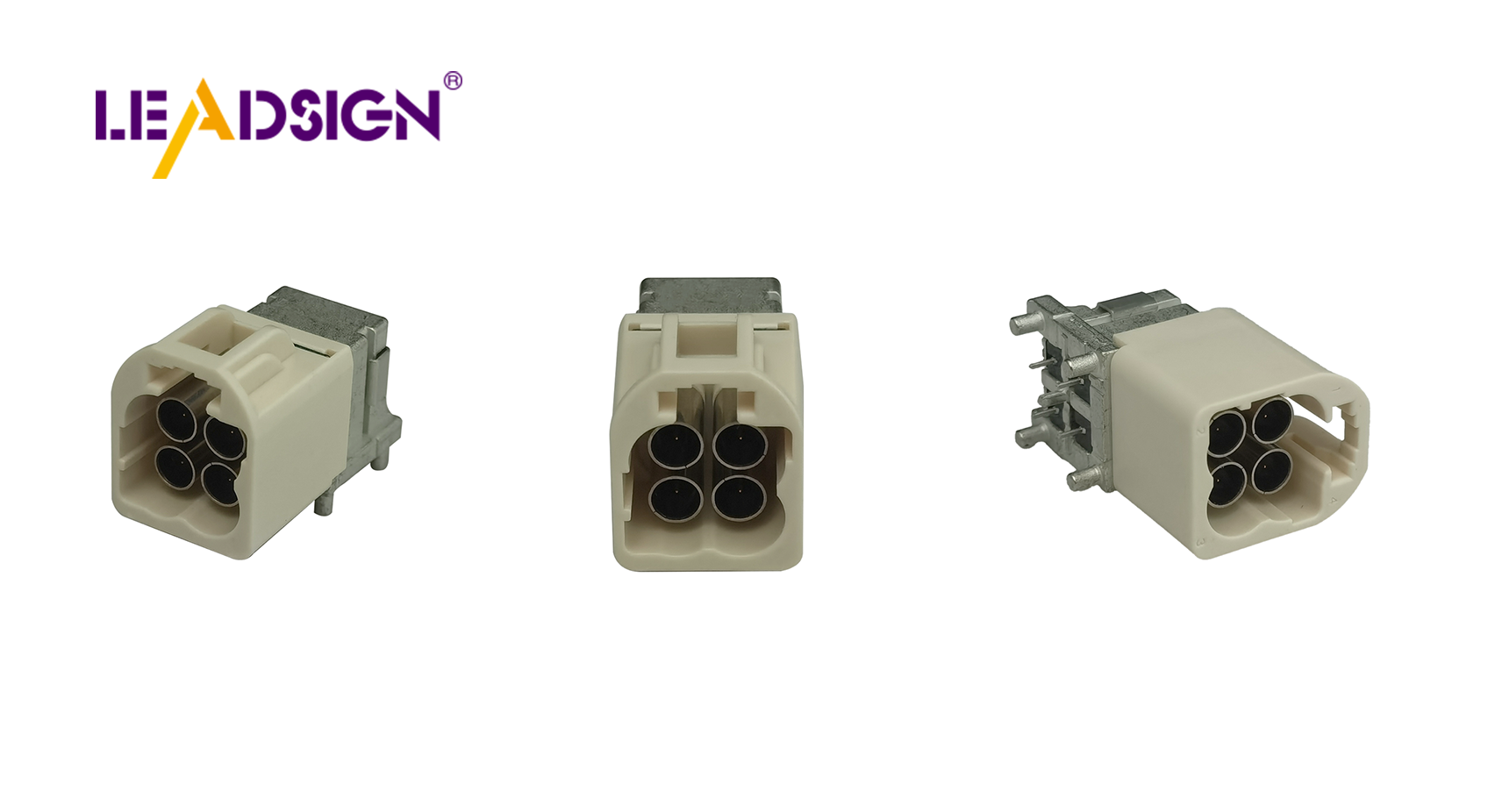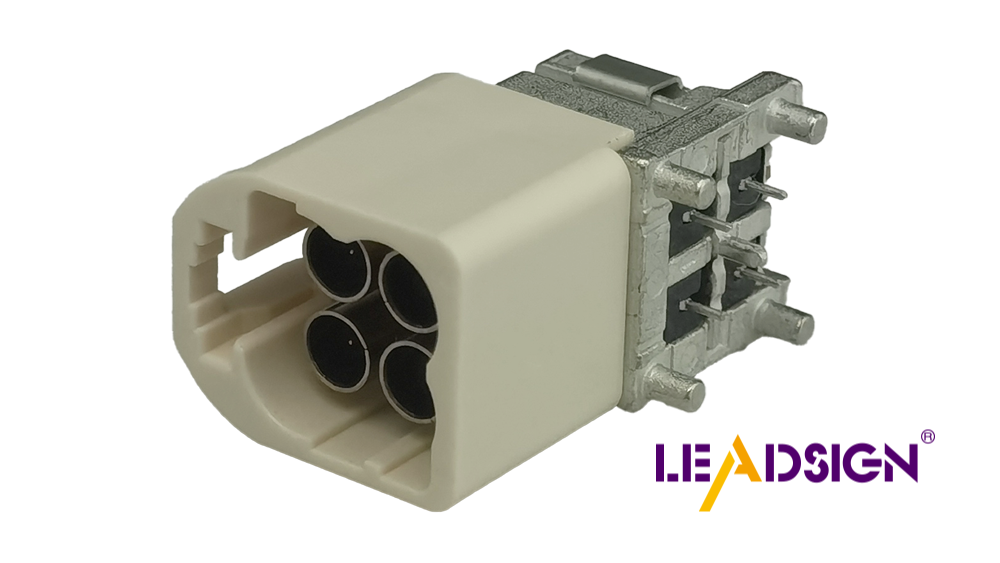How to Choose the Best Automotive Wiring Connector Types

Choosing the appropriate automotive electrical connectors types is crucial for maintaining the safety and reliability of your vehicle. With various types available, each designed to withstand different levels of heat and power usage, it is essential to consider these factors. For instance, one connector may have a failure rate of ƛD= 0.000316. Understanding these distinctions enables you to make informed decisions, ensuring optimal performance of your car's electrical system.
Understanding Automotive Electrical Connectors Types

When working with car electrical systems, knowing about different automotive electrical connectors is important. Each type has its own job and advantages. Let's look at these types and what makes them special.
Types of Automotive Electrical Connectors
Blade Connectors Blade connectors are flat and slide into a matching slot. They are common in cars because they are simple and dependable. They connect securely and are easy to put in or take out.
Bullet Connectors Bullet connectors have a round shape that fits into a matching socket. These are good for quick connects and disconnects. They often link parts like speakers or sensors in car wiring.
Butt Connectors Butt connectors join two wires end-to-end firmly. They are used a lot in fixing or changing car wires. Crimping them onto the wires makes sure the connection is strong.
Pin Connectors Pin connectors have pins that fit into matching sockets. These are used in car testing tools because they last long and handle bumps well.
Connector Materials
Plastic Connectors Plastic connectors don't weigh much and resist rusting. They work well where weight needs to be low, but may not last as long as metal ones.
Metal Connectors Metal connectors last longer and conduct electricity well. They're best for hot places needing strong connections. Choosing between plastic or metal depends on what your car needs.
Connector Sizes and Ratings
Current Rating Current rating shows how much current a connector can safely carry without overheating or failing.
Voltage Rating Voltage rating tells the highest voltage a connector can handle safely, ensuring your car's electrical parts work well.
Knowing these types of automotive electrical connectors helps you pick the right ones for your car, making sure everything works safely and reliably.
Things to Think About When Picking Connectors
Choosing the right automotive electrical connectors means looking at important things. These help keep your car's electric system working well.
Weather Conditions
Heat Resistance Think about how much heat connectors can handle. Cars get very hot or cold. Good connectors don't break in these temperatures. They work well even when it's really hot or cold, keeping your car running fine.
Water and Rust Resistance Water and rust can hurt connectors a lot. Pick ones that don't let water in or rust easily. This is important for cars in rain, snow, or near road salt. Sealed connectors stop water from getting inside, lowering rust risk and keeping connections strong.
Power Needs
Conductivity Conductivity helps electricity move well. Choose connectors that let electricity flow easily with little loss of power. Metals that conduct well are great for car connectors, giving steady power.
Insulation Insulation stops wires from touching by accident and keeps things safe. Pick connectors with good insulation to avoid wire contact problems. It also keeps signals clear, which is key for cars with lots of electronics.
Toughness Needs
Strength Strength matters when picking connectors because they face bumps and shakes in cars. Go for strong ones that won't break easily under stress, making your car's electric parts last longer.
Easy Setup Easy setup helps when putting in or fixing parts later on. Get connectors that are simple to attach and remove, saving time and effort during repairs or upgrades while avoiding mistakes.
By thinking about these points, you can find the best automotive electrical connectors for your car, ensuring it works safely and reliably on the road.
Best Ways to Pick Connectors
Picking the right car connectors means knowing what you need and checking good sources. This part helps you figure out what you need and look at maker details to make smart choices.
Checking What You Need
To pick the best car connectors, check what you need them for. Do these two things:
Finding Out Where to Use Them
Think about where you'll use the connectors in your car. For example, if they're near the engine, they should handle heat. If they might get wet, they should keep water out. Knowing where and how they'll be used helps you pick the right ones.
Checking How They Work
Look at how well different connectors work. Check things like how often they fail, which depends on their design and where they're used. More pins or hot places can mean more failures. Using them a lot can also cause problems. Pick ones that last long and work well for your needs.
Looking at Maker Details
Once you know what you need, check maker details to choose wisely.
Reading Data Sheets
Data sheets have important info about connectors. They show things like how much power they can handle and what they're made of. By reading these, you can see if they fit your car's needs.
Comparing Brands
Look at different brands to find the best connectors for you. Choose brands with good products that work well. Think about cost, how easy they are to get, and reviews from others. By comparing brands, you find ones that give good value and work well.
By using these tips, you can pick the right car connectors confidently. This keeps your car's electric system safe and working well.
When picking car wiring connectors, think about important things. Check the weather where you drive and what your car needs for power. Make sure they fit well with your car's parts. Good connectors help your car work better and stay safe. Bad ones can cause problems and dangers. Choose connectors that fit your car's needs to keep it running well. Choosing the right connector is key for your car to work its best.
See Also
Enhancing Automotive Connectivity with Fakra Connectors in Modern Cars
Maximizing Automotive Data Transfer: Cutting-Edge Connectors and Cables
The Significance of HSD Connectors in Automotive Sector

